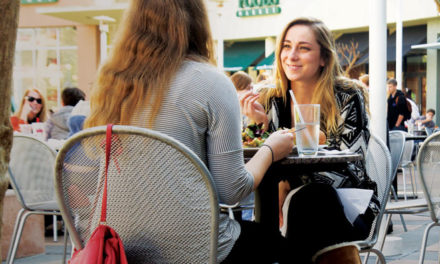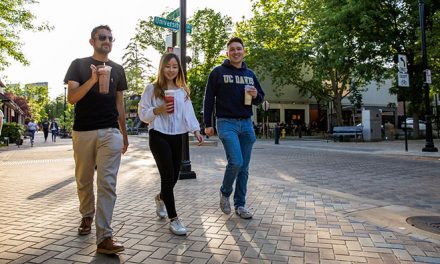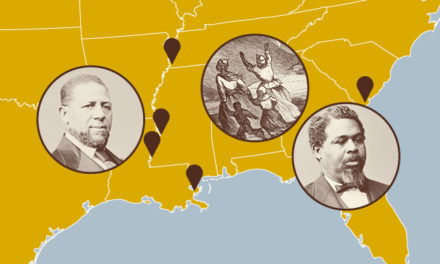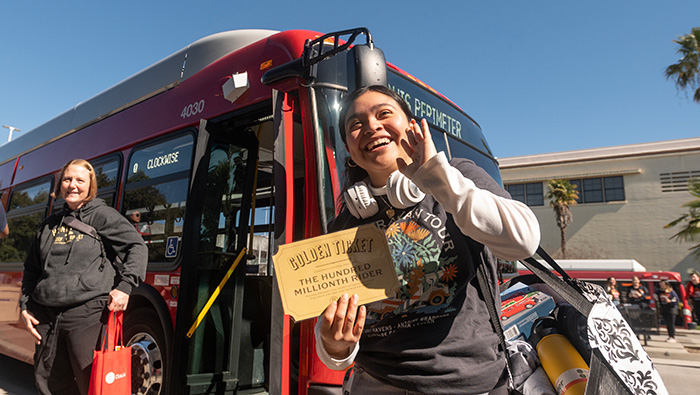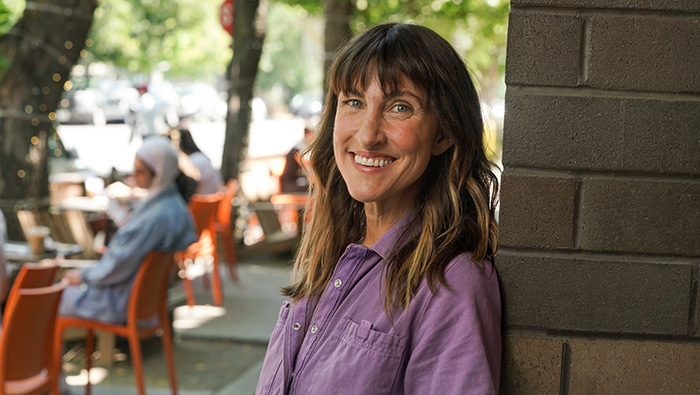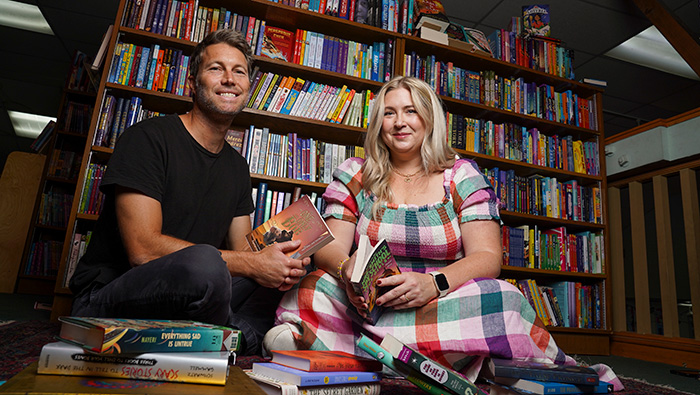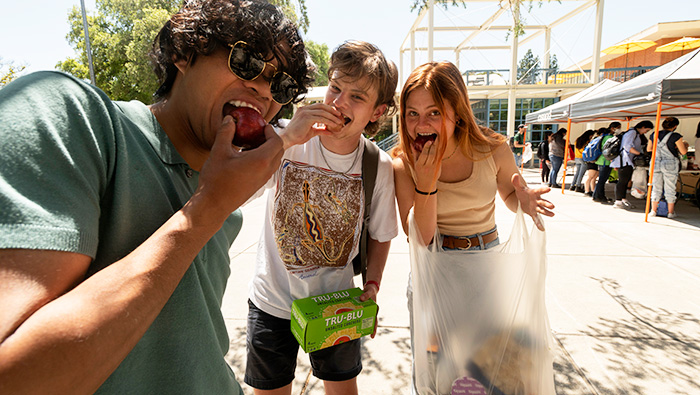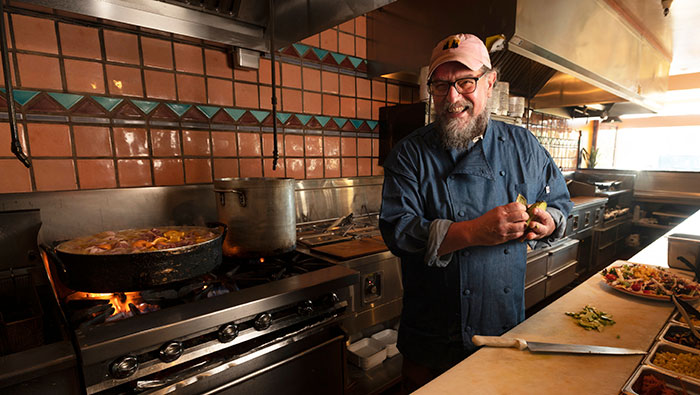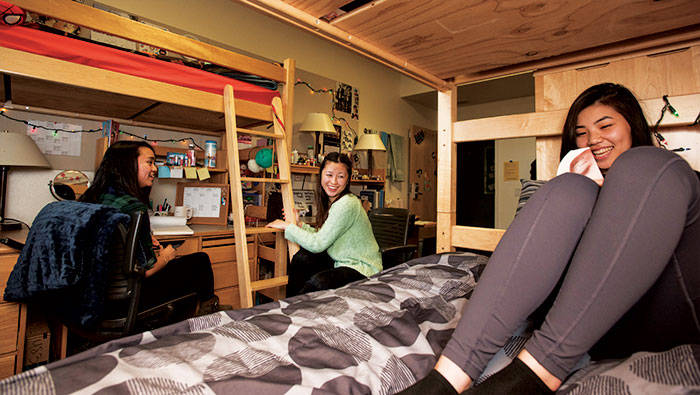
Left to right: Students Lindsay Mendoza, Cindy Tran and Vivian Siu in their triple-occupancy dorm room at UC Davis. They made more space by lofting one bed and sliding a desk underneath.
Photo: Karin Higgins/UC Davis
Growing Pains
To move into an apartment in Davis in September, expect to sign a lease in January.
Housing in the city of Davis has been notoriously scarce for decades, and as the student population is poised to grow, new developments promise some relief.
UC Davis will have about 5,000 more students by the year 2020 than it did in 2011 to meet Chancellor Linda P.B. Katehi’s 2020 Initiative, as well as additional students added in response to UC President Janet Napolitano’s plan to enroll more Californians throughout the UC system.
To accommodate the rising student population, new residence halls are under construction, more rooms are being converted to triple-occupancy, and the university is master leasing more off-campus apartments for student housing. West Village currently houses 2,000 people and plans to add space for 1,000 more, along with housing for faculty and staff. The UC has said it also will accelerate student housing projects, adding nearly 14,000 beds throughout the system by 2020. UC Davis provides housing for about 10,000 students and guarantees availability to first-year and transfer students.
Bob Segar, assistant vice chancellor for Campus Planning and Community Resources, said UC Davis is studying a range of strategies for creating more campus housing. The “high” scenarios could almost house the entirety of the new student population. The university is also seeking public input on its plans for future growth — a Long Range Development Plan for 2017-2027 — at campustomorrow.ucdavis.edu.
While more beds are coming to UC Davis, many students will choose to live off campus. In January, the annual ASUCD Housing Day gave students the chance to speak to representatives from dozens of apartment complexes around town.
Some attendees pored over a 79-page list of area apartments, while others conferred with future roommates over prices and amenities.
“Everyone’s trying to get the maximum amount of space for the least amount of money,” undeclared freshman Samuel Melero said.
Serena Santamaria, unit director for ASUCD’s Housing Advising for Undergraduate Students, led planning for the event. She has lived in the same apartment for the last three years and said finding a place to live in Davis is easy as long as you aren’t picky.
“If somebody wants their own room that might be more difficult,” the senior English and psychology double major said. “Generally everybody is looking for roommates.”
Still, demand far outpaces supply. The vacancy rate in the city of Davis continues to drop; 0.2 percent of units are vacant, down from 0.3 percent last year, according to a study commissioned by UC Davis Student Housing.
Kerrie Schultz, the on-site manager at Lexington, said in the eight years she’s worked at the apartment complex she’s seen ASUCD’s Housing Day move about a month earlier, reflecting how early the overall search begins. And students don’t always get their first choice.
“It’s kind of stressful,” said Devin Pon, a freshman electrical engineering major. “You’re competing against all the other people looking for housing.”
More housing is needed, but new developments can take time. The Cannery, a 547-unit community of single-family homes, townhouses and flats in North Davis, is under construction after being first considered nearly a decade ago. Other proposed complexes, like the 244-unit Sterling 5th Street Apartments, have been met with opposition. Developers originally proposed Trackside as a five-and-a-half story retail and apartment building near the Davis Amtrak station, but after outcry plan to revise their proposal.
A large-scale development known as the Nishi Gateway will face voters in June. The proposed 47-acre development, with 440 apartments, 220 condos, retail, office and R&D space, would sit between the southeastern side of campus next to I-80. It seeks to provide housing for students and empty-nesters and space for companies founded in campus research labs. If it’s approved, the developers would have to pay for improvements to the Richards Boulevard interchange and a new crossing under the railroad tracks to access campus.
Tim Ruff ’83, one of those developers, heads up the Nishi Gateway project, which has seen its fair share of debate. Ruff said getting to this point has taken three years, and it could be another three years before breaking ground.
During a February forum on growth in the city, Davis Mayor Pro Tempore Robb Davis was critical of the way conversations about development happen.
“What I see in this community is a lot of zero-sum thinking: ‘I want change on my terms or I don’t want it,’” he said.
Davis predicted the next city council will work to update the city’s general plan to lay out more clear expectations for growth, adding that it will be a “challenging process.”

